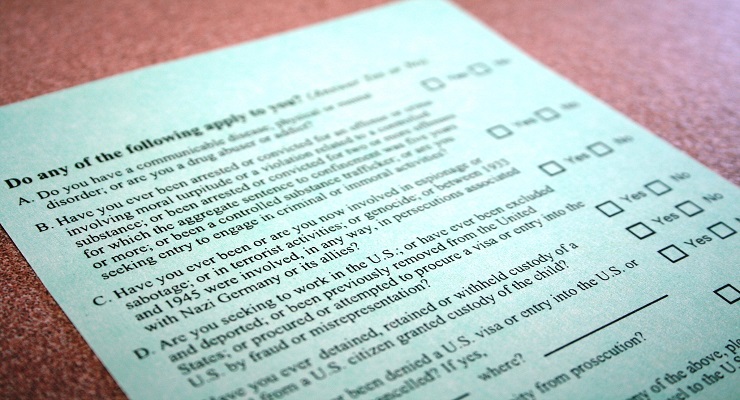
From the Brennan Center for Justice:
On December 5, 2019, the Brennan Center, along with the Knight First Amendment Institute at Columbia University and Simpson Thacher & Bartlett LLP, filed a lawsuit on behalf of two U.S. based organizations that collaborate with filmmakers around the world, Doc Society and the International Documentary Association (IDA), challenging the State Department’s dragnet requirement that nearly all applicants for U.S. visas register on their application forms the social media identifiers they have used over the past five years on a list of twenty platforms, including those like Facebook, Instagram, YouTube and Twitter. This registration requirement, which took effect in May 2019 and affects about 15 million people a year, reflected a major expansion of the government’s probing into the social media activity of travelers and immigrants to the U.S. The lawsuit also challenges the Department of Homeland Security’s (DHS) subsequent retention and dissemination of those identifiers.
The registration requirement and related retention policies lead people to self-censor. Partners and members of the organizations we represent use pseudonymous handles to speak online about sensitive or important topics to protect themselves from retaliation, but they must now register them with the U.S. government, which claims the authority to disseminate them abroad. Even people who do not choose to remain anonymous reasonably fear that government officials will misinterpret or misattribute posts made in online environments where people interact differently than they do in real life. DHS policies that contemplate the retention of applicants’ social media data for 100 years after their birth – and permit using it for broadly defined purposes – only magnify these chilling effects. As a result of these burdens on speech, Doc Society and IDA are forced to expend additional resources to maintain relationships with non-U.S. filmmakers, to learn about their work and issues confronting their communities, and to encourage them to travel to the United States to participate in their programs and engage with their U.S. audiences.
Dragnet social media surveillance harms free expression, but there’s no evidence that it helps protect national security or enforce the immigration laws. In 2017, the DHS Inspector General concluded that the social media screening pilot programs it reviewed failed to measure effectiveness and could not justify scaling the practice. Other internal DHS reviews pointed out that officials found it difficult to make use of social media data to identify national security threats. These findings are consistent with what expert and civil society organizations have pointed out in opposing proposals to expand social media screening.
For these reasons, the lawsuit alleges that the State Department’s registration requirement and related retention and dissemination policies violate the First Amendment because they deprive visa applicants of the rights to anonymous speech and private association, and because they chill constitutionally protected speech and association, while being poorly tailored to the government’s stated interests. The registration requirement also violates the Administrative Procedure Act because it exceeds the State Department’s authority under the Immigration and Nationality Act and is arbitrary and capricious.
Visit this link for the case files and other related resources.
Leave a Reply